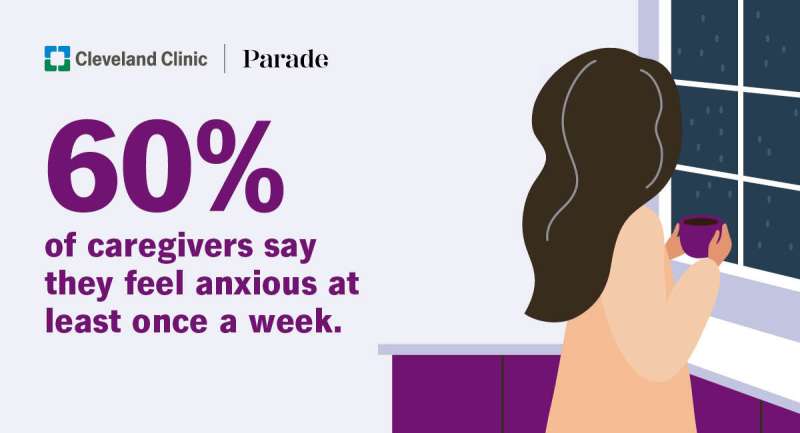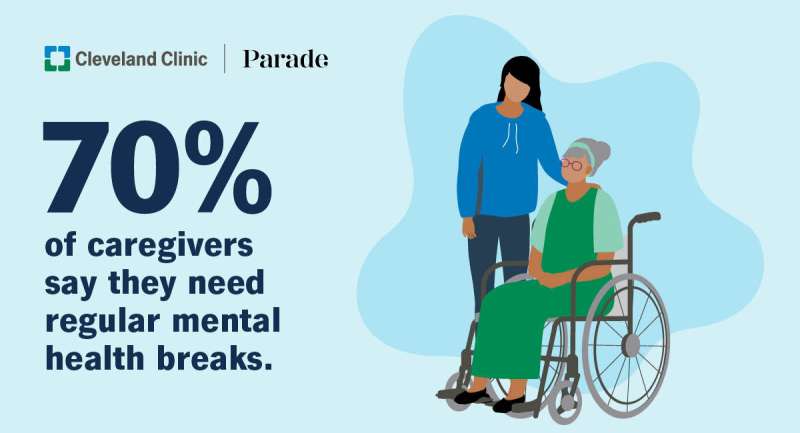Credit: Cleveland Clinic
Research shows caregiving can take a significant emotional, physical and financial toll on a person.
"Family caregiving is an incredibly intensive and time consuming experience," said Lucille Carriere, Ph.D., psychologist for Cleveland Clinic.
"We typically see this in more complex medical diagnoses, such as dementia, where we see a lot of unfortunately negative effects for family caregivers."
According to data from a Cleveland Clinic and Parade Media survey, 36% of caregivers suffer from depression and anxiety, which is 114% more than non-caregivers.
In addition, 56% of caregivers say it's not realistic for them to take a day off for their emotional and mental health, even though 70% agree they need regular mental and emotional health breaks.
Credit: Cleveland Clinic
Dr. Carriere said it's important for caregivers to get time for themselves. While it may not always be feasible, there are little things they can do.
"It could be as little as five minutes or maybe it needs a little bit longer, and I think that's some kind of personal reflection on the case of the caregiver to kind of decide what feels right for them," she said.
"So if that's a five-minute walk, stepping outside to do a breathing exercise, if it's taking a few moments to journal or call or text a friend, for example, those can all be really meaningful for that individual caregiver."
Dr. Carriere said if you notice a caregiver in your life is having a hard time, you may want to talk to them about how they're feeling and offer help, if possible.
More information: parade.com/health/caregiving-mental-health-survey
Provided by Cleveland Clinic
























